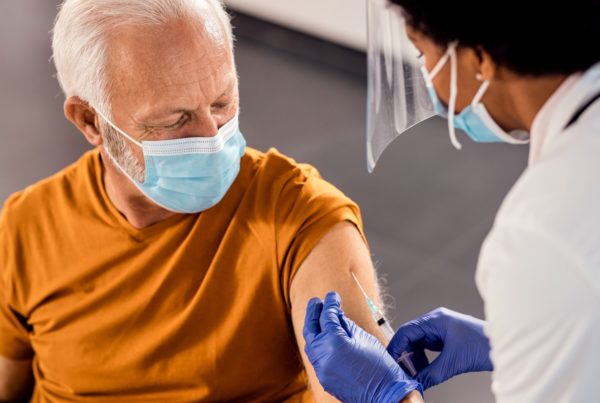
We have been in the midst of the coronavirus pandemic for almost a year now. We have learned to adapt and adopt new ways of living. Wearing masks, practicing social distancing, utilizing proper hand hygiene, and confinement have become part of our regular life.
Recently, two vaccines have been approved for distribution in Canada: the Pfizer-BioNTech and the Moderna COVID-19 vaccines. As they have started to be administered across the country, we also learned that the coronavirus (SARS-CoV-2) has mutated, which causes more concerns in Canada and around the world.
Mutations Around the World
A new variant of the coronavirus has been detected in the United Kingdom, precisely in South East England. It has also been identified in different countries around the world, and here in Canada as well. Yet, other variants of the COVID-19 virus have been reported in the past few weeks, one important one is the South African variant. The UK variant, known as VUI–202012/01 or B.1.1.7 has 23 mutations in its genetic code. The South Africa variant is referred as B.1.351 or 501Y.V2.
According to the London School of Hygiene and Tropical Medicine, the UK variant is more transmissible. Preliminary findings for the South African variant also show a higher transmissibility, but less data is available.
Experts believe there is no evidence that the new strains of COVID-19 cause greater sickness or lead to more hospitalizations and deaths. There is also no concern at present that the new strains will have any impact on vaccine effectiveness.
Are Mutations Normals?
You may be wondering, why is there a mutation to the virus that causes COVID-19? It is important to remember that viruses mutate all the time and RNA viruses, such as SARS-CoV-2, mutate more quickly than DNA viruses. Thus, the emergence of new variants is expected.
What does it mean? Take for example the influenza virus, which changes regularly and makes it difficult for our bodies to recognize and fight off the virus each year. Its tendency to evolve is the reason we have a new vaccine every flu season.
The coronavirus, however, is still new to us. It is too early to predict if we will need to be vaccinated annually. Experts around the world are monitoring the duration of immunity in individuals who are receiving the vaccine and checking to ensure it is covering all the variants. We will understand better in time if we need to be vaccinated every year and/or if we need to change the vaccine every year.
Stay Vigilant
Because the coronavirus has infected so many people around the world, it has had more opportunities to mutate and to survive, and it is adapting to become better at infecting people. With new strains emerging every day, it is important to stay vigilant and to continue to follow and respect public health guidelines from authorities in your province.
The following public health practices will help you protect yourself from the virus that causes COVID-19 and its new variants:
- Avoid being indoors with people outside of your household.
- Wear a mask if you need to be indoors with others, such as in stores. Also wear a mask if you are outdoors but are in a situation where it is difficult to physically distance from others.
- Practice proper hand hygiene.
- Disinfect and clean objects and surfaces regularly.
- Keep practicing physical distancing.
- Avoid crowded places.
- Limit non-essential travel.
- Ensure good indoor ventilation. Open windows if possible to promote air circulation.
- Stay at home if you are sick or have symptoms of COVID-19.
Check out more health tips on our blog.
Sources:
- Coronavirus disease (COVID-19): Measures to reduce COVID-19 in your community, Government of Canada.
- Coronavirus disease (COVID-19): Symptoms and treatment, Government of Canada.
- COVID-19 UK Variant VOC-202012/01 – What We Know So Far, Public Health Ontario.
- Episode #20 – COVID-19 – Variants & Vaccines, World Health Organization.
- How pandemic influenza emerges, World Health Organization.
- Interim: Implications of the Emerging SARS-CoV-2 Variant VOC 202012/01, Centers for Disease Control and Prevention.
- Mechanisms of viral mutation, Rafael Sanjuán and Pilar Domingo-Calap.
- New COVID-19 Variants, Centers for Disease Control and Prevention.
- New modelling estimates the potential impact of the new COVID-19 strain, London School of Hygiene & Tropical Medicine.
- Risk related to spread of new SARSCoV-2 variants of concern in the EU/EEA, European Centre for Disease Prevention and Control.
- SARS-CoV-2 Variants, World Health Organization.



